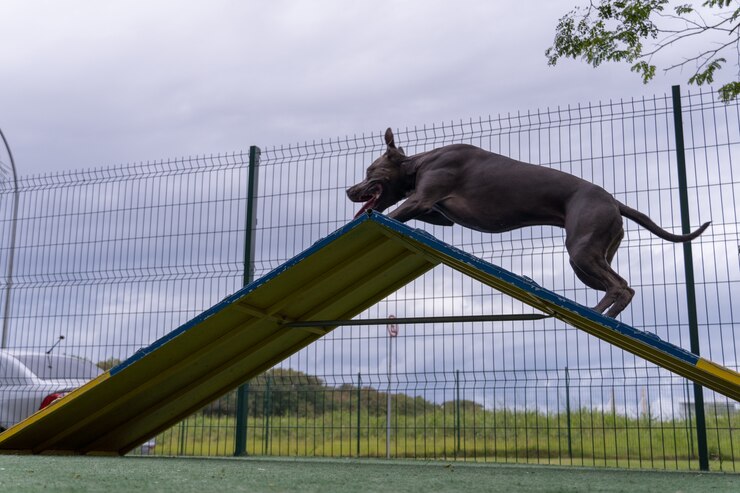As the population of Pit Bulls in the United States continues to grow, with over three million dogs across the nation identifying as part of this breed, we must examine who this group of animals are and why they have been so heavily stigmatized by society.
What is a Pit Bull?
The term “pit bull” is a catch-all phrase that can refer to any number of different breeds of dog, including the American Pit Bull Terrier, the American Staffordshire Terrier, and the Staffordshire Bull Terrier. These breeds share some common physical characteristics, such as a muscular build and a short coat, but they can vary significantly in size, temperament, and overall appearance.
Despite their often-feared reputation, pit bulls are relatively gentle dogs that make great companions. They are intelligent and eager to please, which makes them easy to train. They are also known for being exceptionally loyal to their owners and families.
Unfortunately, pit bulls have been the subject of intense media scrutiny in recent years due to a small number of high-profile attacks involving these dogs.
This coverage has led many people to believe that all pit bulls are dangerous animals that should be avoided at all costs. However, this is not the case. Pit bulls are no more likely to attack people than any other breed of dog; they are often bred specifically for their gentle nature and love of human companionship.
The Truth Behind Pit Bulls
Pit bulls are often portrayed as dangerous, aggressive dogs in the media. However, pit bulls are no longer likely to be more aggressive than any other dog breed. Pit bulls are known for being gentle, loving, and loyal companions.
The media tends to focus on stories about pit bulls attacking people or other animals. However, these stories are rare and do not accurately represent most pit bulls who are loving and well-behaved pets. The media also often portrays pit bulls as being involved in dog fighting. While some pit bulls may be used for this purpose, the vast majority of pit bulls are not bred or trained for fighting.
Pit bulls have a terrible reputation partly because of their association with gangs and violence. However, most pit bull owners are responsible and loving pet owners who have nothing to do with gangs or violence.
If you’re considering adopting a pit bull, don’t let the media’s portrayal of this breed deter you. Pit bulls make excellent companion animals and can significantly add to any family.
Aggression in Older Pit Bulls
Pit bulls are often portrayed as aggressive, dangerous dogs in the media. However, this is not always the case. Older pit bulls can be as loving and gentle as any other dog breed.
There are several reasons why an older pit bull may become aggressive. One reason may be due to the dog being territorial. Older pit bulls may also become aggressive if they feel threatened or scared. This can lead to aggression if an older pit bull has been abused or neglected.
It’s important to remember that each dog is an individual and that aggression is not always inherent in the breed. With proper training, socialization, and love, an older pit bull can make an excellent companion for many years.
How to Train a Pit Bull
Pit bulls are often demonized in the media, but the truth is that they can be gentle, loving companions. With proper training and socialization, pit bulls can make great pets. Here are some tips on how to train a pit bull:
1. Start early. It’s essential to begin training and socialization as early as possible. This will help your pit bull become used to different people and situations and make them more likely to respond well to training.
2. Be consistent. Consistency is vital when training any dog, but it’s essential with pit bulls. Ensure you use the same commands and rewards each time, so your dog knows what is expected of them.
3. Be patient. Pit bulls are intelligent dogs, but they can also be stubborn. Be patient while training your dog, and don’t get frustrated if they don’t seem to be progressing as quickly as you’d like. They’ll get there eventually!
4. Use positive reinforcement. Like all dogs, pit bulls respond best to positive reinforcement such as treats or praise. Avoid using negative reinforcement (such as scolding or punishment), as this can make your dog fearful or aggressive.
5. Get professional help if needed. If you’re having trouble training your pit bull yourself, consider hiring a professional trainer or behaviorist for assistance.

